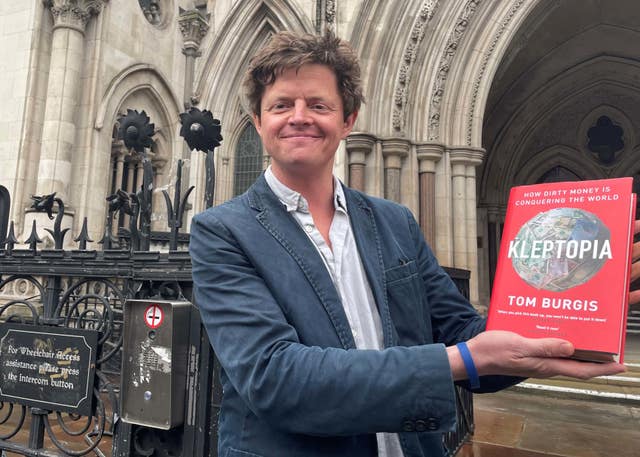
Law firms and individuals who “abuse” the legal system to try to shut down criticism should face sanctions, a committee of peers has heard.
Journalists and lawyers told the House of Lords Communications and Digital Committee on Thursday that more needed to be done to cut down on so-called Slapps, or Strategic Lawsuits Against Public Participation.
Concern about Slapps, which often involve targeting investigative journalists with libel, privacy or data protection lawsuits in order to deter them from publishing a story in the public interest, has grown recently due to their use by Russian oligarchs believed to be connected to Vladimir Putin.
Charlie Holt, a senior lawyer for Greenpeace, told the committee that the UK courts had become a “tool of intimidation” and said both the law firms involved and those they represent should be penalised for bringing Slapps.
He said: “We do see certainly what we might loosely term the emergence of a Slapp industry (in the UK), certain law firms that market themselves as being particularly aggressive at shutting down criticism.”

The committee heard that a November 2020 survey of journalists by the Foreign Policy Centre found that the UK was by far the leading source of Slapp cases in the world, accounting for nearly a third of all cases and almost as many cases as the US and EU combined.
But while several witnesses told the committee there needed to be changes to limit the costs of lawsuits and allow Slapps to be thrown out of court early on, Mr Holt said this would still not be enough.
He said: “It’s really important that there is a robust system of sanctions which are instituted as well, which can actually work to deter plaintiffs from engaging in these tactics.
“Any type of system that can name and shame Slapp litigants, for example through a registry, is also something that we’d like to see advanced.”
The committee also heard that tactics used to intimidate investigative journalists were not confined to threats of legal action.
Clare Rewcastle Brown, whose Sarawak Report website has conducted long-running investigations into corruption in Malaysia, said she had experienced other forms of harassment.
She said: “The legal action is never in isolation, in my experience.
“We have a whole range of service industries here in what’s been known as the concierge capital of the world.
“In the course of finding myself up against very powerful people with the 1MDB (corruption) investigation, I had ex-SAS operatives, ex-Metropolitan Police officers, ex-senior GCHQ personnel running private investigation companies who were engaged in an all-round operation to vilify me.”
The Government has pledged to tackle Slapps, with Justice Secretary Dominic Raab announcing a consultation on March 17 on plans that could include capping the costs claimants can recover to try to stop people “weaponising the high cost of litigation to stifle free speech”.
Labour has welcomed the proposals, but described them as “too little, too late”.


Why are you making commenting on The National only available to subscribers?
We know there are thousands of National readers who want to debate, argue and go back and forth in the comments section of our stories. We’ve got the most informed readers in Scotland, asking each other the big questions about the future of our country.
Unfortunately, though, these important debates are being spoiled by a vocal minority of trolls who aren’t really interested in the issues, try to derail the conversations, register under fake names, and post vile abuse.
So that’s why we’ve decided to make the ability to comment only available to our paying subscribers. That way, all the trolls who post abuse on our website will have to pay if they want to join the debate – and risk a permanent ban from the account that they subscribe with.
The conversation will go back to what it should be about – people who care passionately about the issues, but disagree constructively on what we should do about them. Let’s get that debate started!
Callum Baird, Editor of The National
Comments: Our rules
We want our comments to be a lively and valuable part of our community - a place where readers can debate and engage with the most important local issues. The ability to comment on our stories is a privilege, not a right, however, and that privilege may be withdrawn if it is abused or misused.
Please report any comments that break our rules.
Read the rules here